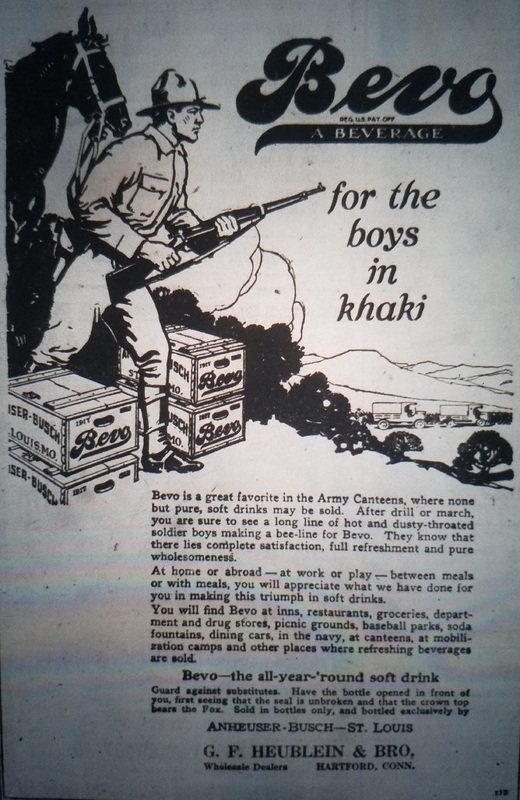For the Boys in Khaki
The Economics Of Near-Beer
The U.S. was officially at war from April 6, 1917 to November 11, 1918. Those 19 months had major implications for the American economy. Before the war about $1.5 billion dollars in exports was done on the European Continent. By the time of the wars end, the U.S. export total had topped $4 billion. Between 1916 and 1920, the Gross National Product went from $46 to $87 billion dollars. Federal dollars spent in 1916 was 1.3 billion, and just two short years later, that total ballooned to more than $15.5 billion. While wages remained fairly stagnant, unemployment dropped from 7.9 to 1.4% Private enterprise rode the wave to success, laying the foundation within 7 years for President Coolidge to utter, "the chief business of the American people is business."
All of that economic news paid large profits to businesses who were positioned to take advantage of opportunities. Tobacco, candy, and anything that was made for the troops did unsurprisingly well. Drinks such as Bevo were no exception. It was a perfectly timed beverage for the war. The escalation of the military from 27,000 troops in 1916 to over 2 million within two years, kept the bottles moving. With Prohibition starting in January of 1920, Bevo and other near beers were perfectly set to supply the nation. Many young men had never tasted beer before, and under camp life, they acquired a taste of products such as Bevo. Unfortunately for Bevo, but not so much for drinkers, the government ultimately lacked the power to enforce Prohibition, and illegal alcohol cut into the legal drinks profitability. Bevo was discontinued in 1929, and the repeal of the 18th Amendment by the 21st in 1933, closed that chapter of the American experience.
